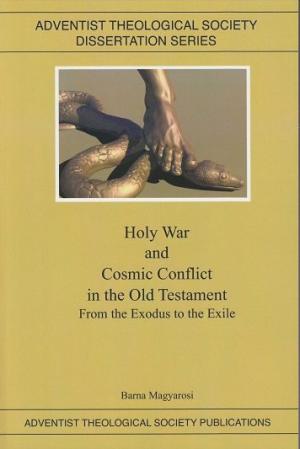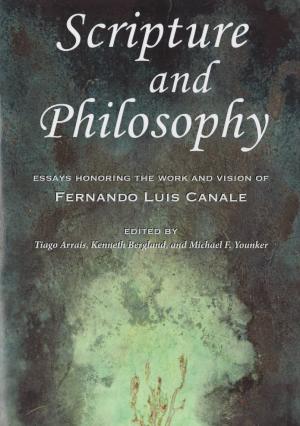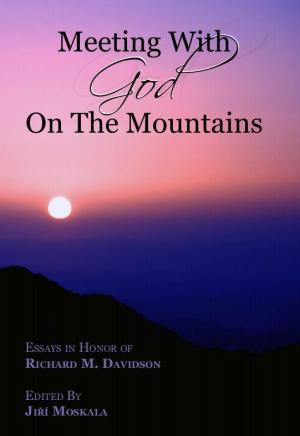Youth Heritage Celebration at Battle Creek in October

Gary Swanson, communication vice-president for ATS and editor of Perspective Digest, will present a seminar on the history of Sabbath School at the Youth Heritage Celebration in Battle Creek, Michigan, United States. The theme of the weekend celebration is “Lest We Forget.”
The youth heritage event begins October 18, 2018, at 7:00 p.m. at the Battle Creek Tabernacle and continues through Sabbath evening. The weekend celebration will follow Annual Council, the General Conference’s annual fall business meetings, also to be held in Battle Creek, Oct 11–17.
Terry Dodge, director of the Adventist Youth Ministries Museum (AYMM), which is sponsoring the Youth Heritage Celebration, said that the weekend event will recognize and honor the vital role of youth and young adults in the growth of the Advent movement for 170 years. Besides keynote presentations and seminars, the weekend will feature outreach activities in the community.
“Our focus is on the museum and the heritage of the church,” Dodge said. “That’s why we’re looking at the various facets of the history.” The museum’s board is raising awareness and funds to build a permanent site for the youth heritage collection. When completed, the museum will showcase the church’s youth ministry from the 1850s to the present. It will also be a place for evangelism, Dodge adds.
During the Youth Heritage Celebration, the museum will feature displays in the Red Barn in Adventist Heritage Village in Battle Creek.
Progress on Eschatology: Rome Bible Conference

Richard Davidson, a former ATS president, reports that the international Bible conference in Rome was helpful to the Seventh-day Adventist Church for the advancement of gospel truth. “I think it was a landmark conference for us,” Davidson said.
Papers from different disciplines, including biblical studies, systematic theology, archaeology, and church history tackled the subject of eschatology from many different angles. “Some papers gave new and fresh information that not only substantiates but further clarifies our prophetic timeline and shows how we’ve been looking a little too narrowly at some of the historical data to try to line it up with prophecy,” Davidson said.
Attendees praised the opportunity to rub shoulders with Bible scholars and church administrators from around the world, hearing papers and talking in the hallways, discussing topics further.
Four or five papers on Daniel 11, Davidson said, were extremely helpful. The last paper, given by one of the Andrews University seminary’s doctoral students, pointed a way forward.
The historical tours were very informative, according to ATS president-elect John Reeve. “To have people who know what to look for, putting things into perspective and seeing it against the Reformation and against the debates of justification by faith and the gospel in the time of the Reformation,” Reeve said, “it was a great package, well organized. We just needed more hours in the day.”

The conference had several important takeaways, according to Reeve. “We took away good exchange of scholarship. And we took away good camaraderie of scholars,” he said.
A number of collaborative efforts were spawned by the Bible conference, including four that involve Reeve himself. (See the news item below on forthcoming books on the trinity.) From the conference, plans emerged for an ATS symposium on the trinity at Italian Adventist University Villa Aurora in Florence, for June 2019. Another event was set up for Southwestern Adventist University on a different topic.
And then, the conference was a place for scholars and administrators to get together and have official meetings. “These were face to face meetings, where you can communicate, question and answer, and move things forward administratively at our schools around the world,” Reeve said.
The effect of the conference was mostly to clarify and illuminate Adventist understanding of eschatology, Reeve explained. “There were questions and answers and challenges and difficulties dealt with based on eschatology that were clarifying Adventist positions. You’re not proposing new eschatological information so much as you’re talking about how and why we do things in the light of our eschatology.”
Book Review: Canonical Theology

Canonical Theology: The Biblical Canon, Sola Scriptura and Theological Method by John C. Peckham, associate professor of theology and Christian philosophy, Seventh-day Adventist Theological Seminary, Andrews University. Eerdmans, 2016, 295 pp
In this volume John C. Peckham wrestles with the role of biblical canon and/or community of faith in the articulation of Christian doctrine. How can the church be the final arbiter of Christian theology and practice? Since there is a divide among Christians regarding the theological authority of the canon and community, this work is trying to answer the question, To what extent can extracanonical theological arbiters become the rule of faith and practice?
Peckham deals first with the definition and role of the intrinsic canon versus the authority of community in determining the theological rule of faith, the definition and scope of the biblical canon, and the inadequacy of the communitarian (community-determined) approach to canon. He then offers an overview of a variety of denominational and cross-denominational communitarian approaches to constructing theology. He also defends the sola scriptura principle and asserts that canonical systematic theology depends on the recognition of the sufficiency and primacy of Scripture.
Peckham writes that the canonical conceptual framework calls for humility, ethical reading, and moving from particulars of divine revelation to universal conceptions, and refraining from premature conclusions (p. 257).
There was a great need in the marketplace for a volume like this one, which would analyze and seriously struggle with articulating the canonical theological method in contrast to communitarian methods. Peckham affirms that his goal was “to lay out a plausible and workable canonical approach to systematic theology, which can be practiced by others across the vast range of Christian communities who recognize the common canonical core and might engender dialogue via a common starting point and preliminary approach” (p. 259).
—Aleksandar S. Santrac, DPhil, PhD, professor of Ethics, Religion and Philosophy and chair of the Religion Department, Washington Adventist University
CREATION SABBATH Coming Soon

October 27 is this year’s designated Creation Sabbath, an official global event of the Seventh-day Adventist Church. It is a special day for churches to specifically recognize God’s power and grace as Creator and Redeemer, according to the Creation Sabbath site.
“Let’s place God as the center of the universe in our churches and communities,” said Tim Standish, staff scientist for environmental biology and public policy at the Geoscience Research Institute (GRI). “Creation Sabbath is a day for all Bible believers to be still, take a deep breath, and know that God is God. This is one of those special times when we, as Christians, can take joy in our common faith centered on the Creator God of the Bible.
“It is an opportunity to recognize that each one of us is fearfully and wonderfully made, infinitely valuable, and to share in the love that God has for each of us," Standish added. "Creation Sabbath also liberates us to reflect on the wonderful world God made for us, while looking forward to the new Creation, when our Creator and Savior will make all things new.”
GRI supports Creation Sabbath with an annual Creation Sabbath Film Contest. The 2019 contest is in the planning stage, with early details available at the GRI site. A video to be featured in 2018 will be released shortly before the October 27 event.
By designating the fourth Sabbath in October every year as Creation Sabbath, the Seventh-day Adventist Church is “acknowledging God as our Creator and the implications that this biblical teaching has for us . . . to create a worldwide sense of unity in promoting this belief in a positive light.” The event is endorsed by the world church at this site.
Anniversary of Archaeologists in the Holy Land

(image is of Oystein LaBianca, director of the Tall Hisban Cultural Heritage Project, with Hisban village elders)
Adventists archaeologists were active in the field during the summer of 2018. Andrews University’s Institute of Archaeology professors were involved with three separate digs.
Oystein LaBianca led a team at Tall Hisban (biblical Heshbon), located southwest of Amman in Jordan. Another Andrews University team started a new dig at Khirbet Safra, west of Madaba. The team was led by Paul Z. Gregor and assisted by Paul Ray, Constance Gane, and graduate students in archaeology from Andrews. Yet another Andrews team, led by Randall W. Younker, ATS vice-president for publications, continued excavations at San Miceli (Salemi) in the province of Trapani in western Sicily.
LaBianca’s team did excavation and restoration at the biblical site known primarily for being the capital city of King Sihon of Heshbon, who fought against the Israelites during the Conquest era, and also the locale of King Solomon’s “Pools of Heshbon.”
On the dig at Khirbet Safra, Gregor’s team reports that although the ancient identity of Safra is uncertain, recent finds suggest that it appears to be an early Israelite settlement site first occupied during the time of the Judges, around the late 13th/early 12th century BC. A phase from the 10th century BC (the time of Solomon) was also found, as well as some occupation from the Byzantine period.
San Miceli, where Younker’s group has been working, is a paleo-Christian site and, Younker reports, is shedding light on the origins of Christianity in Sicily (a land that the apostle Paul visited at the very beginning of Christianity). So far the team, with Andrews doctoral students Chris Chadwick, Carina Prestes, and Jared Wilson, has worked on two Christian basilicas with accompanying baptistery and necropolis; storage rooms next to the church; and a mansio (way-station complex). The churches have revealed intricate mosaic floors with inscriptions containing the names of the early leaders of the community, as well as their priest. Work will continue at this new site in summer 2019.
The most significant archaeological event this summer was a celebration of 50 years of the Madaba Plains Project in Jordan. The extensive project is conducted by a consortium of Adventist universities, with archaeological excavations at the biblical-period sites of Tall Hisban, Tall al-Umayri, and Tall Jalul, all in the Madaba Plains region, south of Amman and east of Madaba, for the past 50 years.
The celebrations included lectures by archaeologists who have directed work at these sites; tours of the sites; a banquet; and an outdoor celebration on the top of Tall Hisban. Members of Jordan’s royal family joined directors Larry Geraty, Larry Herr, Doug Clark, Oystein LaBianca, and Randall Younker. Constance Gane and Roy Gane (a former ATS president) also participated, as well as numerous Adventist students and scholars and colleagues from other institutions. Representatives from the Department of Antiquities of Jordan and the American Center of Oriental Research (ACOR) attended the celebration. The memory of Siegfried Horn, father of Adventist biblical archaeology, was honored as well.
“There were questions and answers, challenges and difficulties dealt with based on eschatology that were clarifying Adventist positions. You're not proposing new eschatological information so much as you're talking about how and why we do things in light of our eschatology."
News Shorts

Transforming Worldviews: Symposium 2018
On October 18-20, 2018, the Seventh-day Adventist Theological Seminary, in conjunction with ATS and the Biblical Research Institute (BRI), will host a symposium titled “Transforming Worldview(s): Biblical Faithfulness in a Pluralistic Age.” The conference will explore the impact and importance of a biblical worldview in the lives of Seventh-day Adventists. Kevin J. Vanhoozer, a prominent evangelical theologian and author known for his dynamic presentations, is the keynote speaker. The conference is free but requires registration on Eventbrite.com. It begins Thursday, Oct 18, at 7:00 p.m. and continues through Sabbath, Oct. 20 at 5:30 p.m.

ATS Scholars Contribute Sabbath School Lessons
Denis Fortin, professor of historical theology and former dean at the Seventh-day Adventist Theological Seminary, is the author of “One in Christ,” on the subject of unity, for the fourth-quarter 2018 Adult Bible Study Guide. His Sabbath School companion book, One in Christ: Biblical Concepts for a Doctrine of Church Unity (Pacific Press, 2018), has been translated into Spanish and Portuguese. The current Sabbath School lesson on the book of Acts was authored by Wilson Paroschi, a New Testament professor from Brazil who recently joined the faculty of Southern Adventist University in Tennessee, USA.

Lichtenwalter Appointed to MEU Presidency
Larry Lichtenwalter was appointed president of Middle East University in Lebanon on June 12, 2018. Lichtenwalter, a former ATS president, has been Dean of the Faculty of Philosophy and Theology and Director for the Institute for Islamic and Arabic Studies at the university and retains those responsibilities for the time being. “My purpose in joining MEU was to follow what I sensed as God leading me to mentor another generation of thought leaders and gospel workers,” Lichtenwalter said. “We are in need of scholarship funds for students, programs, faculty and staff. Most of all for unity of heart, spirit, and vision so God can do in and through us what He envisions.”

Next Steps for Faith and Life Series
For ATS Academy, the next video projects will take a turn toward documentary format, according to Feliz Cortez, ATS past president, and John Reeve, ATS president-elect. The plans are in the initial stage, with a goal of finding a production team that can produce both a full-length documentary and a series of shorter programs. The full-length film would deal with the history of God’s people from before the Creation until after the re-creation of the world. The shorter programs in the series would each deal with one of the phases of human history from a biblical perspective in documentary style. At press time, the production team for the next Faith and Life series had not be chosen.

November Symposium – Denver, Colorado
A reminder that the annual ATS Fall Symposium takes place Nov. 14-17, 2018 in Denver, Colorado, USA. The meeting occurs on the weekend of the ETS annual meeting. The theme of this year’s ATS meeting is the Holy Spirit. “This is a hot topic in evangelicalism and also in Adventism,” says John Reeve, ATS president-elect. “Several international students from Andrews University will be presenting, and also several international scholars.”

Books on the Trinity in Planning Stage
Ed Zinke, ATS treasurer, and John Reeve, president-elect, are formulating a multi-contributor book on the Adventist perspective on the trinity, to be published by 2021. The chapters would draw on key articles published in JATS and AUSS and papers from three symposia on the topic in the past decade. An ATS symposium on the trinity is planned for Italian Adventist University Villa Aurora in Florence, Italy in 2019 that will also provide material for the book.

Do You Need to Renew?
Did you receive a membership renewal email from Adventist Theological Society? If not, please send a message to info@atsjats.org or click here to ask for a renewal notice. Your membership is appreciated!




